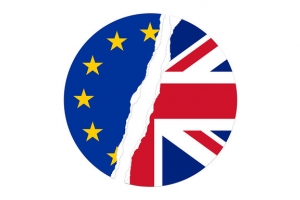Support migrant centric journalism today and donate

UK companies are being warned to prepare for imminent changes to the Tier 2 Intra-Company Transfer Visa. The amendments, which were first announced in March 2016 with a view to being introduced this autumn, are likely to make it more difficult for multinational companies to transfer foreign personnel to the UK.
Changes to the Tier 2 Intra-Company Transfer (ICT) Visa were sanctioned amid allegations that the programme was being abused by multinationals, with the IT industry cited as a major culprit.
Tier 2 Intra-Company Transfers to become more difficult
The new rules will further restrict multinational companies seeking to transfer highly-skilled foreign personnel.
Under current Tier 2 ICT Visa legislation, multinational organisations seeking to transfer personnel from an overseas branch to the UK are required to:
- Obtain a Tier 2 Sponsorship Licence
- Provide an ICT employee with a job offer, plus a Tier 2 Certificate of Sponsorship (CoS)
Currently, four categories of ICT visa exist including:
- The Long-Term Staff Category, which permits multinational companies to transfer foreign personnel for a period of between 12 months and five years. There’s also an option to extend the transfer to nine years, provided the employee is in receipt of a salary in excess of £155,300 per year.
To be eligible, a foreign worker must have been employed by an international branch of the multinational organisation for a period of at least 12 months while earning a minimum salary of £41,500 or the equivalent rate for their specific job role as outlined in the Code of Practice, whichever is higher.
- The Short-Term Staff Category, enables an international member of staff to be transferred to the UK for a duration not exceeding 12 months. Similar to the long-term category, the foreign worker must have been employed by the overseas office for a minimum of 12 months.
Current legislation specifies that short-term transferees much be earning £24,800 per year or the equivalent rate for their occupation as outlined in the Code of Practice.
- The Graduate Trainee Category, applies to international transfers for a period not exceeding 12 months for the purpose of undertaking a graduate trainee programme. To qualify, transferees are required to be a recent graduate, with a minimum of three months service under their belts at a foreign branch of the multinational organisation, with the salary threshold is set at £24,800
- The Skills Transfer Category, enables multinational firms to transfer foreign employees to the UK for a maximum period of six months for the purposes of developing the skills and knowledge needed to carry out their job role overseas or to impart knowledge to UK-based staff. This category is not restricted to just graduates and there’s no requirement that you should have previously worked for a branch of the business overseas. Again, the minimum salary is £24,800.
To qualify for an ICT visa, foreign employees must meet the maintenance requirement criteria, not only for themselves but for dependants too. The foreign employee also needs to show £945 in savings or employment by an A-rated sponsor organisations.
For tier 2 transferees entering the UK for more than three years, they will need to meet the necessary English language requirements.
Unlike other Tier 2 visas, which are capped at 20,700, there’s no limit on the number of ICT visas that can be issued and a multinational company is not obligated to advertise a job vacancy prior to recruiting a foreign worker. However, a multinational company will be asked to specify the need for an intra-company transfer when submitting an application.
Anti-Immigration MAC report
In December 2015, the so-called ‘independent’ Migration Advisory Committee (MAC) published its long-awaited ‘Review of Tier 2: Balancing Migrant Selectivity, Investment in Skills and Impacts on UK Productivity and Competitiveness,’ report. The document recommended that the government should impose further Tier 2 Visa restrictions.
In June 2015, the then Home Secretary and now newly installed UK Prime Minister, Theresa May, commissioned the MAC to conduct a review to justify tougher Tier 2 visa rules. The MAC’s recommendations were greeted with an outcry from UK businesses who said that the measures would lead to increased costs, while making recruiting more difficult.
The MAC had come to the conclusion that the ICT Visa had been exploited by multinationals, and said that they had evidence of companies hiring out transferees to third-party firms to work on one-off projects or to work on long term contracts to clients..
In particular, ICT companies with operations based in India, were highlighted as the main offenders for abusing the system. They were accused of transferring to the UK tens of thousands of workers, said to be junior employees or non-specialist IT workers, and then assigning them to projects in the UK.
These companies have come under criticism for, it is claimed, manipulating the ICT programme, using it as a means of employing foreign staff and bypassing the domestic labour pool. It has also been claimed that the workers employed from overseas are receiving significantly lower salaries than their UK-based counterparts with the same skills.
As a result, so it is said, that foreign multinational contractors possess a significant advantage over domestic companies in terms of costs.
An excerpt from the MAC’s report said: “Although these lower costs are passed onto clients in part, this use of the route disadvantages IT firms within the UK who do not have access to this source of labour and UK workers in the IT sector. Additionally, we are not convinced that the use of third-party contracting is contributing to the stock of IT skills within the UK workforce.”
Workpermit.com can help with Tier 2 Visa Sponsorship Licences
If you need help with a Tier 2 sponsorship licence or you would like assistance complying with your Tier 2 sponsorship licence obligations, workpermit.com can help. Call 0344 991 9222 for further details.





















